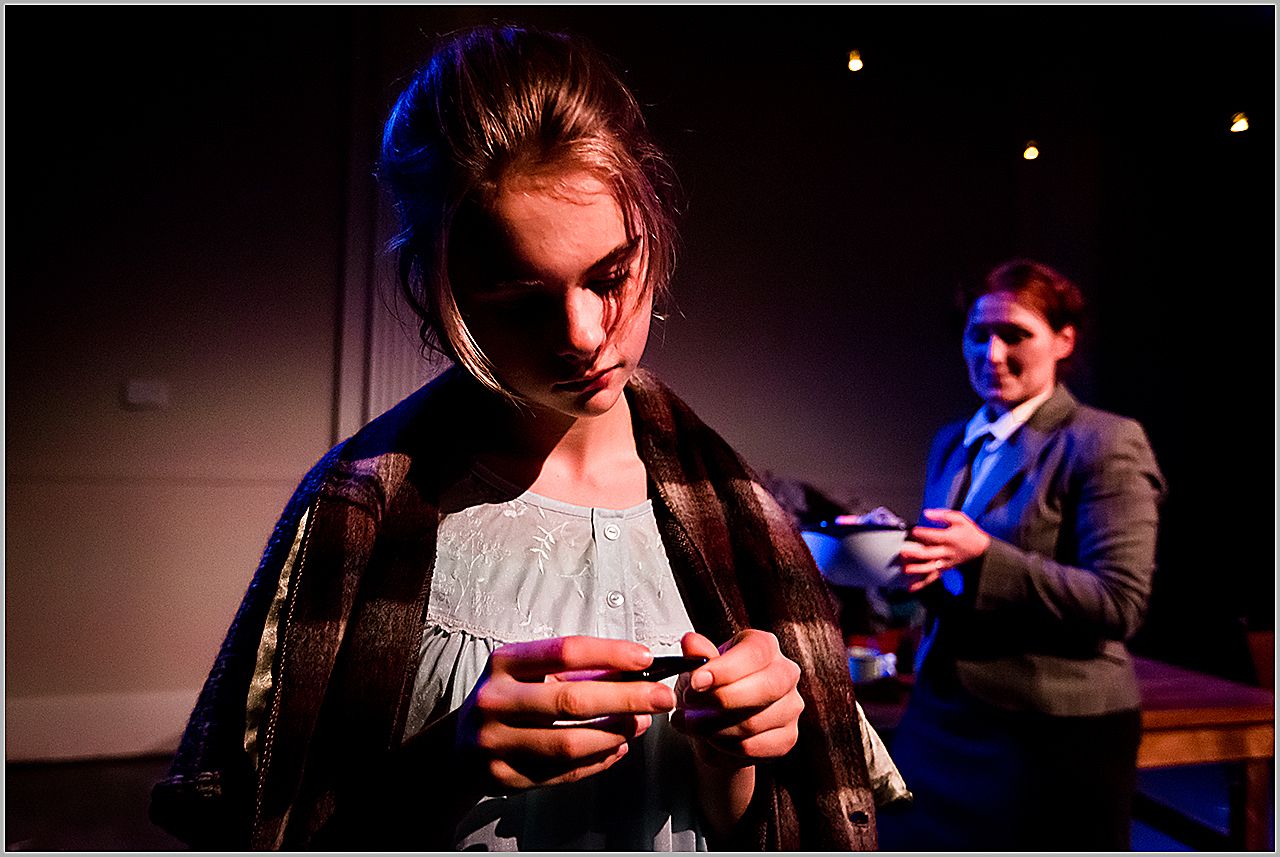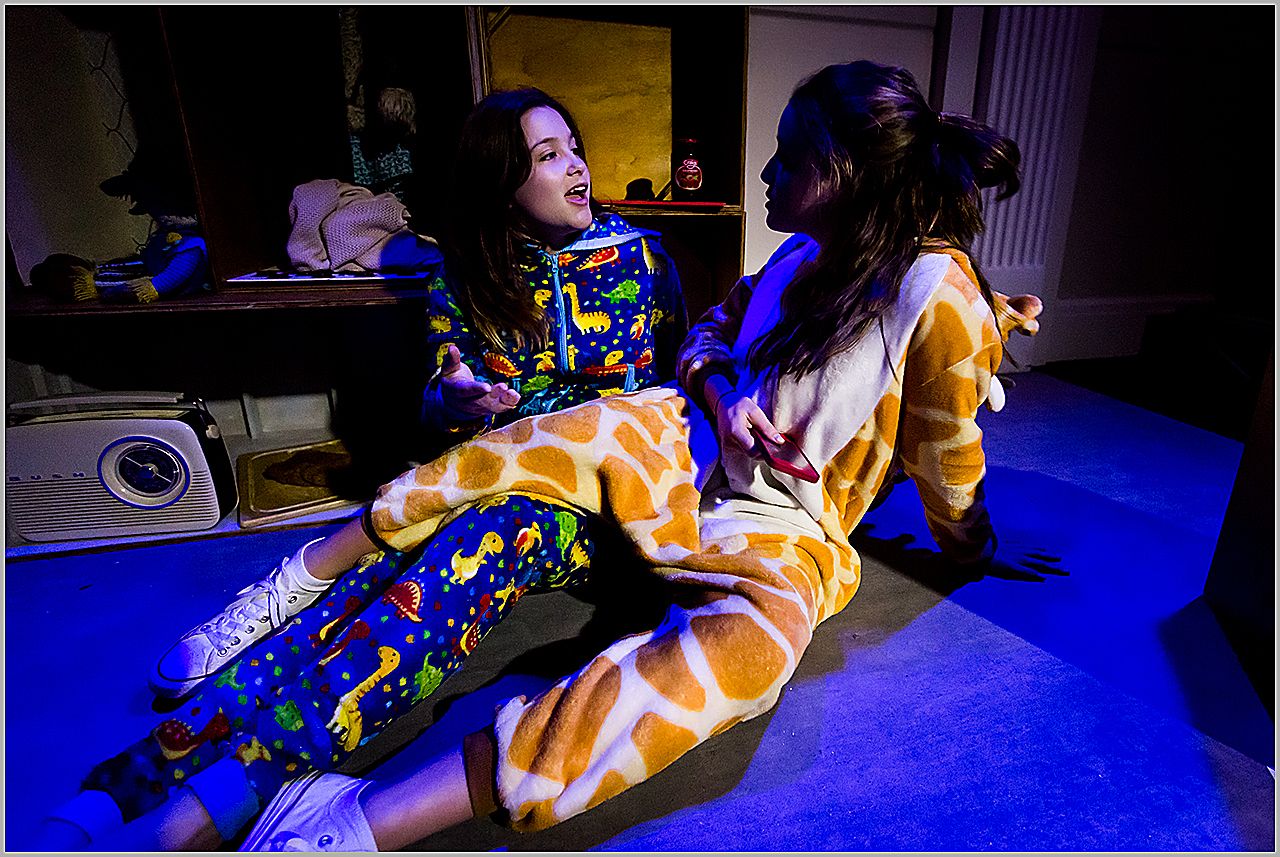Review: Far Away and Love and Information
Hannah Banks reviews LightShade's season of Caryl Churchill plays, a pair of literal interpretations that struggle to grasp at the magic of Churchill's writing.
Hannah Banks reviews LightShade's season of Caryl Churchill plays, a pair of literal interpretations that struggle to grasp at the magic of Churchill's writing.
When theatre critics create lists of the greatest playwrights and plays of all time, Caryl Churchill is often the only living woman included. Churchill has been influenced by other great playwrights, Brecht and Beckett especially, but she’s in a class of her own now. She is often referred to as the greatest living British playwright, and with each new work she seems to reinvent theatre.
I love Caryl Churchill. Her short play Three More Sleepless Nights was the first thing I ever directed. She understands the breadth and depth of human emotion and can express it in ways that are simultaneously succinct and profound. She writes amazing dialogue. Her style ranges from the epic to the ordinary, effortlessly moving from worlds at war to kitchen-sink breakups. She is renowned for dramatising power struggles, feminism, sexual politics, and for her use of non-naturalistic techniques: dream logic, fragmentary scenes, alienation.
So I was excited when Lightshade announced their double season of Far Away and Love and Information, but I was also wary because Churchill is not easy. Her plays are often big, dense and difficult. She makes directors and actors work, so staging a double season with one director is ambitious. Perhaps too ambitious; Lightshade seems to have bitten off more than they can chew, presenting two literal and lacklustre productions of excellent non-naturalistic scripts.
The seating for Far Away and Love and Information, both in BATS’ Heyday Dome, has been arranged into a thrust with the audience on three sides. This leaves a limited playing space, an odd choice for two scripts that hold the entire world in their themes. This decision makes it all seem a bit trivial and small. Far Away, which opens the season, is a complex dystopian fairytale that covers 15 years in just 45 minutes; in three acts, it moves from the personal to the societal to the universal. It’s like a dream, weird and huge and occasionally difficult to follow. Churchill hides important information from the audience, and it deliberately jumps through time and space to make the audience feel uneasy.
The first act is strong, director Tabitha Arthur highlighting the genius of Churchill’s dialogue and how it builds tension in every line. Vanessa Rhodes is convincing as Harper, twisting her lies and trying to hide the hideous truth from Young Joan (an impressive Ilena Shadbolt, who artfully captures Joan’s innocent persistence). Their work is supported by delicate lighting design and a subtle soundscape, though the pile of clothes at the back feels unused, at a remove from the action.
But Far Away comes to a shuddering halt when it transitions to the second act and two stage managers enter to shift the set around. The rhythm that had been building through the first act dies, and the energy and intrigue disappears with it. James Cain and Harriet Prebble work hard despite this, bringing a believable chemistry to Todd and Joan, but their scenes are broken into an awkward rhythm; each time Todd and Joan start a new work day, they cross the stage and pretend to “leave” before coming straight back on. It’s all too realistic for such a strange and otherworldly play. Todd and Joan discuss things like hat-making, parades and corrupt governments - none of which make sense to the audience yet. We see one of these hat parades in the following scene, a never-ending line of actors in grey wearing excellent and fantastical hats, but it goes on just a bit too long, like a dystopian World of Wearable Arts.
Far Away’s themes explode out in the final act, giving us a better sense of this dystopian world. Churchill paints a frightful picture of a bleak world that’s always just out of focus, a world under siege, a world where humankind, animals and even nature itself have all gone to war. The script implies a world that is messy and falling apart but this production feels too clean, too neat; the production needs to reach some kind of climax, something mad to truly communicate the extremity of everything, but instead it’s trying to make everything clear and discernible. This production doesn’t end with a bang, just confused applause.
Churchill is not easy. Her plays are often big, dense and difficult. She makes directors and actors work, so staging a double season with one director is ambitious.
Next up is Love and Information, a wildly imaginative script made rather ordinary here. This play is a mammoth undertaking: there are seven sections, each with six or seven scenes ranging from 30 seconds to several minutes long; the seven sections must be done in order but scenes can be performed in any way; there is also a “random” section of optional scenes at the end, though the scene titled “Depression” is mandatory. There is no character attribution and there are, theoretically, over 100 characters. This gives the director an extraordinary amount of freedom to highlight themes and questions that they are interested in, but it also requires so much more work than a “normal” play. This script is such a surreal gift from Churchill, and every production of this play will be different.
Despite this allowance for interpretation, productions of Love and Information commonly end up a bit surreal. In contrast, Lightshade’s production is quite literal: there is a lot of “love” and a lot of “information”. The set is some kind of living room or bedroom, with shelves at the back of the stage and boxes that are manipulated around the space (again by stage managers, making the transitions feel clumsy and overlong). It is a very small space for an ensemble of fourteen and too much of the play is performed to the front, so those of us sitting on the side miss a lot of the comedy. Moreover, the whole thing feels claustrophobic. Perhaps that is the point, but this script needs space to breathe.
The wonderfully diverse ensemble can be praised for their commitment, and there are some stand-outs among all the scenes (57 total): a man afraid of the journalist knocking at his door; the two lovers discussing their possible affair; an older couple reminiscing about their past; an awkward date where there are too many words for ‘table’. Ian Harcourt and Trae Te Wiki in particular give excellent performances, demonstrating a new and different energy with each character they play. But some scenes fall flat, perhaps due to their forced and literal interpretation, or because the steady, unbroken rhythm becomes repetitive and tiring.
The biggest problem with this production is that Love and Information is not a character piece. It is a thematically driven piece of theatre; the play is all about the ideas, not the people who present them. They do need to be rich and full characters (and some of the characters here are), but Churchill gives no indication of character and space so that the people staging it can say something bigger, rather than invent their own literal situations. Churchill is making a statement about the human condition and while she leaves that statement up to interpretation, each production needs to be saying something, building to something. It’s not clear that this production knows what it wants to say, so the end result is a whole lot of snippets, trailers for full length plays. What do we gain by seeing them all together like this? In LightShade’s case, I don’t know.
Arthur has chosen two excellent scripts and there is a lot of talent in this company, but by directing two at the same time, the company’s focus has been split and both plays suffer for it. Far Away and Love and Information should stick in your mind, moments and characters etched onto your heart, leaving you to think about them for days. At her best, Caryl Churchill makes you feel like you’ve been punched in the gut, like a vice has been wrapped around your heart, like your head might explode. No matter what subject or style, her plays always pack a powerful punch. Lightshade’s productions don’t really connect with these moments, these human emotions. They don’t feel powerful. They feel ordinary.
The Caryl Churchill Double Season: Far Away and Love and Information runs at
BATS Theatre, Wellington
from Thursday 19 May - Saturday 4 June
For tickets and more information about Far Away, go here.
For tickets and more information about Love and Information, go here.



